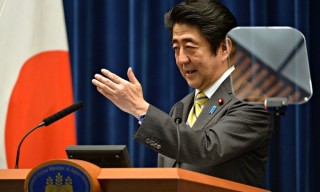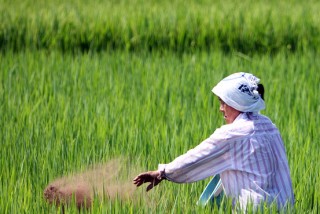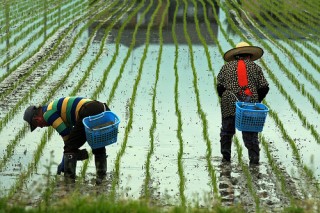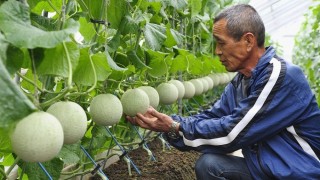Loading
Search
▼ Abe LaunchesNew TPP-mitigation Office to Assuage Farmers, Small Business Owners
- Category:Other

JAPAN TIMES
Prime Minister Shinzo Abe has launched a government office to mitigate potential adverse impacts from the Trans-Pacific Partnership agreement in a bid to ease concerns among farmers and small business owners and help companies advance into overseas markets.
Abe convened a meeting of all 19 ministers at the prime minister’s office on Friday morning to declare the launch of the office, which is seen as a political gesture to appeal to rural supporters of his ruling Liberal Democratic Party.
“TPP is the trump card of the growth strategy to create an open and vigorous economy,” Abe told ministers at the meeting’s end.
Abe emphasized that the TPP will give farmers and small businesses more export opportunities.
He also promised to “relieve concerns” nationwide and help create agricultural communities where young farmers can have bright prospects for the future.
On Thursday, government sources said about half of Japan’s existing tariffs on 834 agricultural products will eventually be abolished if the TPP pact comes into effect, pending the ratification of key member countries.

Those products include oranges, apples, cherries, sausages, chicken, eggs, margarine, aji and saba mackerels, crabs, tea, pineapples, grapes and honey, a document separately released by the agricultural ministry showed.
The surprise revelation, which came three days after the agreement on the TPP outline was announced in Atlanta in the U.S., made headlines in major Japanese newspapers on Friday.

“This agreement will force (Japan) to compete with major exporters such as the United States in all items of the agricultural sector. Voices of anxiety and anger have spread on the front line of (agricultural) production,” JA-Zenchu, the powerful lobby group for agricultural cooperatives nationwide, said in a statement released Thursday evening.
“We request the government to establish policy measures in dialogue with us from now on,” JA-Zenchu also said.
Meanwhile, polls havesuggested a majority of voters support the TPP agreement.
A Kyodo News poll conducted Wednesday and Thursday showed a majority of voters have appreciated the TPP agreement. Some 58 percent said they approve of the TPP, while 32.2 percent disapprove, according to the poll.
Now, Abe and other government officials are striving to sell the positive effects of the deal to farmers and small business owners, who are considered most susceptible to the expected abolition of custom duties on numerous items.
Akira Amari, economic policy minister in charge of TPP talks, said the government on Friday adopted a set of three policies to capitalize on the TPP deal: to help Japanese businesses advance into oversea markets; create innovation and raise Japan’s productivity; and to ease anxiety in the nation, in particular among farmers and those in the fishing industry.

Asked how much of the budget will be expended for those purposes, Amari said only there was still some time before the TPP agreement will be ratified by member countries and come into effect.
“Right now I have no ideas of the scale (of the budget). Only after thoroughly examining what we should do will we see how much of the budget will be needed,” Amari told a news conference Friday.
From 1994 to 2001, Japan spent as much as ¥6.1 trillion to help domestic farmers mitigate against impacts from the Uruguay round of General Agreement on Tariffs and Trade (GATT) free trade talks. But much of the funds were spent on what were believed to be pork barrel public works, which did little to strengthen the ailing Japanese agriculture sector.

Amari admitted the budget funds allocated after the GATT talks drew strong criticism. But this time, much of the budget will be used to help Japanese farmers to increase exports to overseas markets and measures to encourage young people to continue family agricultural businesses, Amari said.
Asked if Japan made too many concessions in removing tariffs on agricultural products, Amari said he didn’t believe so. “We won more exemptions (from tariff removal) than in any other trade negotiations in history that involved the United States,” Amari said.
The TPP pact aims to encourage trade between the U.S., Australia, Brunei, Canada, Chile, Japan, Malaysia, Mexico, New Zealand, Peru, Singapore and Vietnam.
Those countries together account for about 40 percent of the world economy, and have a collective population of around 800 million.
- October 9, 2015
- Comment (0)
- Trackback(0)

